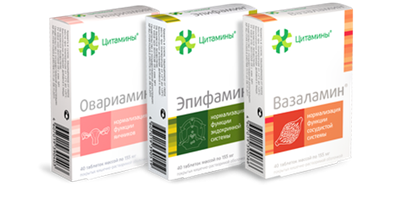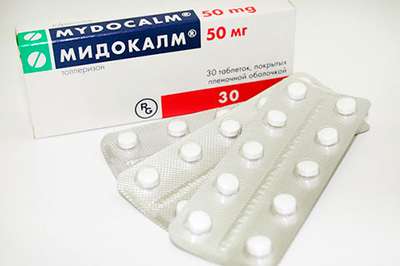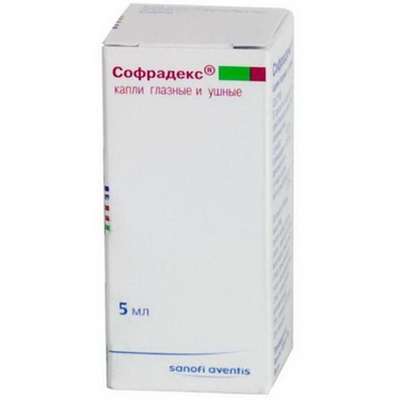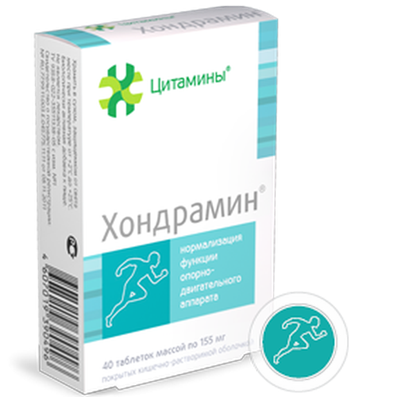Instruction for use: Ronbetal
I want this, give me price
Dosage form: Solution for subcutaneous administration
Active substance: Interferonum beta-1b
ATX
L03AB08 Interferon beta-1b
Pharmacological groups:
Cytokine. Means for the treatment of multiple sclerosis [Antiviral (except HIV) agents]
Interferons
The nosological classification (ICD-10)
G35 Multiple Sclerosis: Disseminated Sclerosis; Multiple sclerosis; Recurrent multiple sclerosis; Secondary-progressive multiple sclerosis; Exacerbation of multiple sclerosis; Mixed forms of multiple sclerosis
Composition and release form
Solution for subcutaneous administration 1 ml
active substance: Interferon beta-1b 8 million IU
Auxiliary substances: mannitol; Dextran 50-70 thousand; Disodium edetate; Polysorbate 80; Sodium acetate trihydrate; Glacial acetic acid; water for injections
1 ml in bottles of colorless glass, corked with rubber stoppers, with the rolling of aluminum caps; In a planar cell pack of PVC film for 5 or 10 bottles; In a pack of cardboard 1 or 3 packs with instructions for use.
Solution for subcutaneous administration 1 ml
Interferon beta-1b 16 million IU
Auxiliary substances: mannitol; Dextran 50-70 thousand; Disodium edetate; Polysorbate 80; Sodium acetate trihydrate; Glacial acetic acid; water for injections
0.5 ml in three-component sterile syringes from colorless neutral glass; In a contoured cell pack of PVC film 1 syringe; In a pack of cardboard 1, 5 or 15 packages with instructions for use.
Description of dosage form
Transparent, colorless or slightly yellow liquid.
Characteristic
Recombinant interferon beta-1b is isolated from Escherichia coli cells, into the genome of which the human interferon beta beta gene encoding the amino acid serine in the 17th position is introduced. Interferon beta-1b is a non-glycosylated protein with a molecular weight of 18500 Da, consisting of 165 amino acids.
Pharmachologic effect
Mode of action - antiviral, immunomodulating, antiproliferative.
Pharmacodynamics
Interferon beta-1b has antiviral and immunomodulatory activity. The effect of interferon beta-1b in multiple sclerosis is due to binding to high-affinity receptors on the cell surface and triggering the expression of a number of proteins that have antiviral, antiproliferative and anti-inflammatory effects. The therapeutic effect of interferon beta-1b in multiple sclerosis is due to a shift in the cytokine balance in favor of anti-inflammatory cytokines, inhibition of leukocyte proliferation, and a violation of the presentation of autoantigens. An important mechanism of the action of interferon beta-1b is a decrease in the rate of migration of leukocytes through the BBB due to a decrease in the expression of metalloproteases, increasing the permeability of the BBB. Interferon beta-1b reduces the binding ability and expression of receptors for interferon-gamma, and also enhances their decay. Thus, interferon beta-1b is an interferon-gamma antagonist, which plays an important role in the pathogenesis of multiple sclerosis. In addition, interferon beta-1b increases the suppressor activity of peripheral blood mononuclear cells and reduces the resistance of T-lymphocytes to apoptosis, causing the death of autoreactive clones.
Pharmacokinetics
After SC administration of interferon beta-1b at a recommended dose of 0.25 mg, its serum concentrations are low or not at all determined. In this regard, there is no information on the pharmacokinetics of the drug in patients with multiple sclerosis receiving interferon beta-1b at the recommended dose. After sc administration of 0.5 mg interferon beta-1b, the maximum plasma levels are about 40 IU / ml 1-8 hours after the injection. Absolute bioavailability of interferon beta-1b with n / k introduction is approximately 50%. When iv interferon beta-1b is used, the clearance and T1 / 2 of the drug from serum averages 30 ml / min / kg and 5 hours, respectively. The administration of interferon beta-1b every other day does not lead to an increase in the level of the drug in the blood plasma, and its pharmacokinetics during the course of therapy does not appear to change. With the use of interferon beta-1b at a dose of 0.25 mg every other day, the levels of biological response markers (neopterin, beta2-microglobulin and immunosuppressive cytokine IL-10) were significantly increased in comparison with baseline values 6-12 hours after the first dose Preparation. They reached a peak in 40-124 h and remained elevated during the 7-day (168 h) study period. The relationship between plasma levels of interferon beta-1b or the levels of markers induced by it and the mechanism of action of interferon beta-1b in multiple sclerosis has not been established.
Indication of the Ronbetal
A decrease in the frequency and severity of exacerbations in patients with a relapsing-remitting course of multiple sclerosis;
To slow the progression of the disease in patients with a secondary-progressive course of multiple sclerosis.
Contraindications
Hypersensitivity to recombinant interferon-beta or other components of the drug;
Liver disease in the stage of decompensation;
Severe depressive illness and / or suicidal thoughts in the anamnesis;
Epilepsy (adequately not controlled);
pregnancy.
Carefully. Patients who have a history of depression or seizures, as well as patients receiving anticonvulsants, Ronbetal® should be used with caution. The drug should be used with caution in patients with heart failure III-IV stage according to NYHA classification and in patients with cardiomyopathy. Caution should be exercised when using Ronbetal® for patients with impaired bone marrow function, anemia, or thrombocytopenia. Due to the lack of data on use, caution should be used when prescribing to patients younger than 18 years of age.
Application in pregnancy and breastfeeding
It is unknown whether interferon beta-1b can cause fetal damage in the treatment of pregnant women or affect the reproductive function of a person. In controlled clinical trials, patients with multiple sclerosis had spontaneous abortion. In studies in rhesus monkeys, human interferon beta-1b exerted an embryotoxic effect and in higher doses caused an increase in the frequency of abortions. Therefore, interferon beta-1b is contraindicated during pregnancy. Women of reproductive age should be treated with adequate methods of contraception. In case of pregnancy during treatment with interferon beta-1b or pregnancy planning, a woman should be informed of the potential risk and recommend discontinuing treatment. It is not known whether interferon beta-1b is excreted in breast milk. Given the potential for the development of serious adverse reactions to interferon beta-1b in infants who are breastfeeding, it is necessary to stop breastfeeding or to cancel the drug.
Side effects
During the registration clinical study of Ronbetal®, the following adverse events were observed.
General reactions: a complex of influenza-like symptoms, fever, chills.
Local reactions: reaction at the injection site, tenderness at the injection site.
Cardiovascular system: increased blood pressure.
Blood and lymphatic system: anemia, lymphopenia.
Metabolic and nutritional disorders: increase in the level of enzymes in the blood (increased levels of GGT, ACT and ALT up to 4 times from the initial).
Nervous system: anxiety states.
Musculoskeletal system: myalgia.
Skin: a rash of a maculo-papular nature.
When using other preparations of interferon beta-1b, the following undesirable effects were observed.
General disorders and reactions at the injection site: reaction at the injection site, asthenia (weakness), a complex of influenza-like symptoms, headache, fever, chills, abdominal pain, chest pain, pain of different locations, general malaise, necrosis at the injection site .
Cardiovascular system: peripheral edema, vasodilation, peripheral vascular disease, hypertension, palpitations, tachycardia.
Digestive system: nausea, constipation, diarrhea, dyspeptic phenomena.
Blood and lymphatic system: lymphopenia <1500 / mm3, neutropenia <1500 / mm3, leukopenia <3000 / mm3, lymphadenopathy.
Metabolic and alimentary disorders: increase in the level of enzymes in the blood (ACT and ALT 5 times from the initial), weight gain.
Musculoskeletal system: myasthenia gravis, arthralgia, myalgia, leg cramps.
Nervous system: hypertonia, dizziness, insomnia, impaired coordination, anxiety, nervousness.
Respiratory system: shortness of breath.
Skin: rash, skin diseases, increased sweating, alopecia.
Genitourinary system: mandatory urge to urinate, frequent urination; In women - metrorrhagia (acyclic bleeding), menorrhagia (prolonged menstrual bleeding), dysmenorrhea (painful periods); In men - impotence, diseases of the prostate.
In post-marketing studies, the following side effects of other interferon beta-1b preparations were recorded (the incidence of side effects is classified as follows: very often (≥10%), relatively often (<10% -≥1%), infrequently (<1% -≥0 , 1%), rarely (<0.1% -≥01.01%) and very rarely (<0.01%)).
Common reactions: very often - influenza-like symptoms (fever, chills, myalgia, headache or sweating). The frequency of these symptoms decreases with time. Rarely: general malaise, chest pain, weight loss.
Local reactions: very often - reactions at the injection site (hyperemia, local edema), inflammation, pain; Infrequently - necrosis of the skin. Over time, with continued treatment, the frequency of reactions at the site of administration of the drug is usually reduced.
Blood and lymphatic system: infrequently - anemia, thrombocytopenia, leukopenia; Rarely - lymphadenopathy.
Endocrine disorders: rarely - thyroid dysfunction, hyperthyroidism, hypothyroidism.
Metabolic disorders: rarely - increased triglyceride levels.
Nervous system: infrequently - muscle hypertonia, depression; Rarely - convulsions, confusion, excitement, emotional lability, suicidal attempts, anorexia.
Cardiovascular system: infrequently: arterial hypertension; Rarely - cardiomyopathy, tachycardia, palpitations.
Respiratory organs: rarely - shortness of breath, bronchospasm.
Gastrointestinal tract: infrequently - nausea and vomiting; Rarely - pancreatitis.
Liver and biliary tract: infrequently - increased activity of ACT, ALT; Rarely - increased activity of GGT, bilirubin level, hepatitis.
Skin and subcutaneous tissue: infrequently - alopecia, hives, itching of the skin, skin rashes; Rarely - a discoloration of the skin, increased sweating.
Skeletal musculature: infrequently - myalgia.
Female reproductive system: rarely - menstrual cycle disorders.
Allergic reactions: rarely anaphylactic reactions.
Interaction
In the treatment of exacerbations in patients who received interferon beta-1b, the tolerability of corticosteroids or ACTH, which was used for up to 28 days, was good. Application simultaneously with other immunosuppressants, except for corticosteroids or ACTH, has not been studied. Interferons reduced the activity of hepatic cytochrome P450-dependent enzymes in humans and animals. Care should be taken when prescribing in combination with drugs that have a narrow therapeutic index, the clearance of which is largely dependent on the hepatic cytochrome P450 system (eg antiepileptic drugs). Care should be taken when using any drugs that affect the hematopoiesis system at the same time.
Dosing and Administration
SC, in a day, in a dose of 8 million ME. Do not shake the solution and use immediately. Undesirable repeated injections in the same skin area. Treatment is long (long-term). In controlled clinical trials, the effect of interferon beta-1b treatment persisted for 3 years. There are results of clinical studies in which the duration of treatment in patients with remitting and secondarily progressive multiple sclerosis reached 5 and 3 years, respectively.
Overdose
Interferon beta-1b at doses up to 176 million IU / 3 times a week in adult patients with malignant tumors did not cause serious adverse events.
Special instructions
Treatment is carried out under the supervision of a doctor. Patients should be informed that the side effect of interferon beta-1b therapy may be depression and suicidal thoughts, which should immediately be consulted by a doctor. In rare cases, these conditions can lead to attempts at suicide. In the presence of depression and suicidal thoughts should immediately stop therapy.
Prior to the appointment of interferon beta-1b and against the background of treatment, a detailed blood test should be performed regularly, including the determination of the leukocyte formula, as well as determining the activity of ACT, ALT and GGT. In case of increased activity of transaminases in blood serum, careful monitoring and examination of the patient should be made. The drug should be canceled with a significant increase in hepatic enzyme activity or the appearance of symptoms of hepatitis. In the absence of clinical signs of liver damage after normalization of the level of liver enzymes, one can discuss the issue of resumption of therapy under close monitoring of liver function.
Information about the use of Ronbetal® in patients with impaired liver function and kidneys is absent.
In clinical studies in some patients with multiple sclerosis, the appearance of serum antibodies neutralizing interferon beta-1b was observed. The effect of antibody formation on the clinical efficacy of interferon beta-1b is currently being studied. The available results are contradictory and do not allow for an unambiguous conclusion. No evidence of a negative effect of neutralizing antibodies on slowing the progression of the disease with secondary-progressive multiple sclerosis was found.
In patients who received interferon beta-1b, cases of necrosis at the injection site are described. The area of necrosis can be extensive and deep. When multiple foci of necrosis appear, interferon beta-1b treatment should be stopped until they are fully healed, which can last up to 6 months. In the presence of one focus and the absence of extensive necrosis, treatment with interferon beta-1b may be continued.
To reduce the risk of developing necrosis at the injection site, patients should be recommended:
- comply with the rules of asepsis during the injection;
- constantly change the injection site.
Periodically, one should monitor the correctness of performing independent injections, especially when local reactions occur.
If the connection of cardiomyopathy, which developed during treatment, is expected to be treated with interferon beta-1b therapy, treatment should be discontinued.
The use of cytokines in patients with monoclonal gammapathy was sometimes accompanied by the development of a syndrome of systemic increase in the permeability of capillaries with shock-like symptoms and death.
Effect of the drug on the ability to drive vehicles and service mechanisms
Given the mechanism of pharmacological action of interferon beta-1b, its direct impact on the ability to drive vehicles and work with mechanisms seems extremely unlikely. However, the side effects observed by the CNS and associated with the use of interferon beta-1b in susceptible people can affect the ability to drive or work with machinery.
Conditions of supply of pharmacies
On prescription.
Storage conditions of the drug Ronbetal
At a temperature 2-8 ° C.
Keep out of the reach of children.
Shelf life of the drug Ronbetal
2 years. Do not use after the expiry date printed on the package.
Do not use after the expiry date printed on the package.

 Cart
Cart





